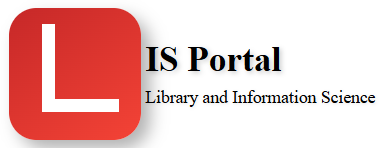The Universe of Knowledge can be thought of as a comprehensive and interconnected system of all knowledge and information that exists. While it can be difficult to fully understand and describe the structure of the Universe of Knowledge, it is generally organized into the following components:
-
Disciplines or Fields: The Universe of Knowledge can be organized into various disciplines or fields, such as physics, biology, philosophy, literature, and art. These fields are defined by the methods, theories, and concepts that are used to understand and explain different aspects of the world.
-
Domains: Within each discipline or field, there are different domains, which represent specific areas of study or sub-disciplines. For example, within the field of biology, there are domains such as genetics, ecology, and biochemistry.
-
Concepts and Ideas: The Universe of Knowledge is composed of various concepts and ideas that are used to explain and understand different phenomena. These concepts and ideas are often interconnected, and can be linked across different disciplines and domains.
-
Information Sources: The Universe of Knowledge also includes a vast array of information sources, such as books, articles, databases, and websites, that are used to access and disseminate information within different fields and domains.
In addition to these components, the Universe of Knowledge also possesses several attributes that characterize its structure:
-
Interconnectedness: The components of the Universe of Knowledge are interconnected, with concepts, ideas, and information sources often linked across different fields and domains.
-
Dynamic: The Universe of Knowledge is dynamic and constantly evolving, with new knowledge and discoveries being made on a regular basis.
-
Multidisciplinary: The Universe of Knowledge is not confined to any single discipline or field, but rather encompasses a wide range of topics and subjects.
-
Hierarchical: The Universe of Knowledge is organized in a hierarchical manner, with broad fields and disciplines at the top, and increasingly specific domains and concepts as you move down the hierarchy.
Understanding the structure and attributes of the Universe of Knowledge can help individuals navigate and make sense of the vast amount of information and knowledge that is available, as well as to appreciate the interconnectedness and complexity of the world around us.
Characteristics of Universe of Knowledge
The Universe of Knowledge is a vast and complex system of all knowledge and information that exists. As such, it is characterized by several key features and attributes that distinguish it from other types of information systems. Here are some of the main characteristics of the Universe of Knowledge:
- Multidisciplinary: The Universe of Knowledge is composed of a wide range of fields and disciplines, from the natural sciences and humanities to social sciences and engineering. This multidisciplinary nature allows for the integration and application of knowledge from various areas.
- Dynamic: The Universe of Knowledge is constantly changing and evolving, with new knowledge and discoveries being made on a regular basis. This requires individuals to keep up with the latest research and information in order to stay current in their field.
- Interconnected: The components of the Universe of Knowledge are interconnected, with concepts, ideas, and information sources often linked across different fields and domains. This interconnectedness allows for the integration of knowledge from multiple sources and disciplines.
- Hierarchical: The Universe of Knowledge is organized in a hierarchical manner, with broad fields and disciplines at the top, and increasingly specific domains and concepts as you move down the hierarchy. This hierarchical structure allows individuals to navigate and organize knowledge effectively.
- Systematic: The Universe of Knowledge is characterized by a systematic approach to understanding the world. This involves using scientific methods and logical reasoning to gather and analyze data, and to develop theories and explanations for observed phenomena.
- Cumulative: The knowledge and information in the Universe of Knowledge are cumulative, meaning that new discoveries and insights build on and expand upon what has already been learned. This allows for continuous progress and growth in our understanding of the world.
- Universal: The Universe of Knowledge is universal in the sense that it encompasses all knowledge and information that exists, regardless of cultural or geographic boundaries. This universality allows individuals from different backgrounds and cultures to share and build upon a common body of knowledge.
